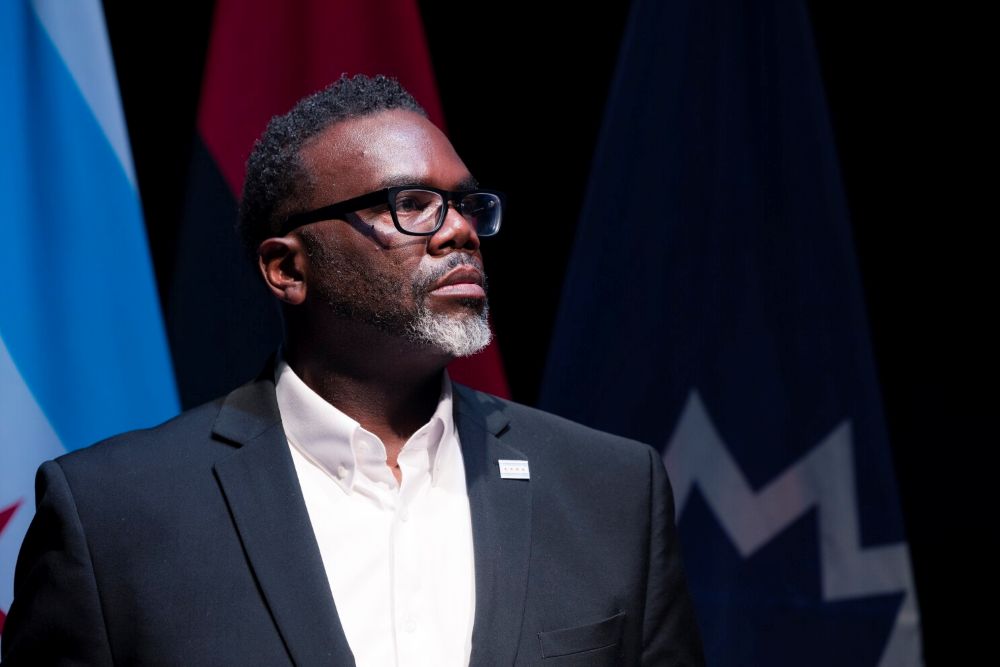Chicago Mayor Brandon Johnson Blocks Sudden Curfew Plan in Push for Long-Term Youth Safety Solutions
Mayor Rejects Emergency Teen Curfew After Narrow Council Approval
In a decisive move that reaffirms his administration’s commitment to community-based solutions, Chicago Mayor Brandon Johnson has officially vetoed a proposed emergency curfew ordinance that would have allowed police to impose a curfew with as little as 30 minutes’ notice.
The ordinance, dubbed a “snap curfew” by its critics, was narrowly approved earlier in the week by a 27-22 vote in the city council. However, that margin fell short of the 34 votes required to override a mayoral veto, making the measure’s future uncertain at best.
Ordinance Sparked Debate Over Youth Control Versus Community Investment
The curfew proposal was introduced as a response to increasing concerns over so-called “teen takeovers”—large gatherings of young people in public spaces that, in some instances, have led to disturbances or escalated into violence.
Supporters of the ordinance argued that giving police rapid curfew enforcement powers could help prevent unrest and improve public safety. However, the plan quickly became a flashpoint in the broader debate about how the city should address youth-related incidents—through enforcement or through engagement and investment.
Mayor Emphasizes Falling Crime and Proven Community Strategies
In his official veto letter, which was submitted to the city clerk and will be formally read at the July 16 council meeting, Mayor Johnson made clear that his administration is focused on long-term, data-driven solutions to public safety.
“At a time when violent crime continues to trend down in the City of Chicago,” he wrote, “it is critical that we continue our investments in community safety strategies that have a proven track record of success. In two short years, we have seen a measurable, sustained decline in crime and violence in our city.”
The mayor pointed to improvements in citywide crime rates as evidence that positive investments in youth and neighborhoods are working, and emphasized that reactionary policies could undermine this progress.
A Focus on Youth Opportunities and Mental Health Support
Rather than granting police sweeping authority to implement sudden curfews, Johnson’s administration says it will continue building partnerships with community organizations, businesses, and philanthropists to expand youth employment, mental health care, and safe spaces for teens.
These partnerships are part of a broader strategy that blends social investment with effective policing, aiming to not only reduce crime but also address its root causes.
Progressive Caucus Strongly Backed Veto Decision
Before the vote, 18 members of the Progressive Caucus had publicly urged the mayor to reject the curfew ordinance, calling it short-sighted and ineffective. Their support all but ensures that the veto will be upheld when it returns to the council next month.
This backing also signals growing alignment between the city’s progressive leaders and the mayor’s office on how to handle issues involving young people—prioritizing engagement over enforcement.
As Chicago navigates the complex challenge of balancing safety with civil liberties, Mayor Johnson’s veto highlights a broader policy shift underway in the city. Rather than relying on short-term crackdowns, the focus is shifting toward holistic, long-term public safety strategies that include jobs, counseling, outreach programs, and improved neighborhood infrastructure.
Whether this approach will continue to reduce crime and address youth unrest remains to be seen, but the message from City Hall is clear: lasting safety comes from strong communities, not sudden curfews.

COMMENTS (0)
Sign in to join the conversation
LOGIN TO COMMENT